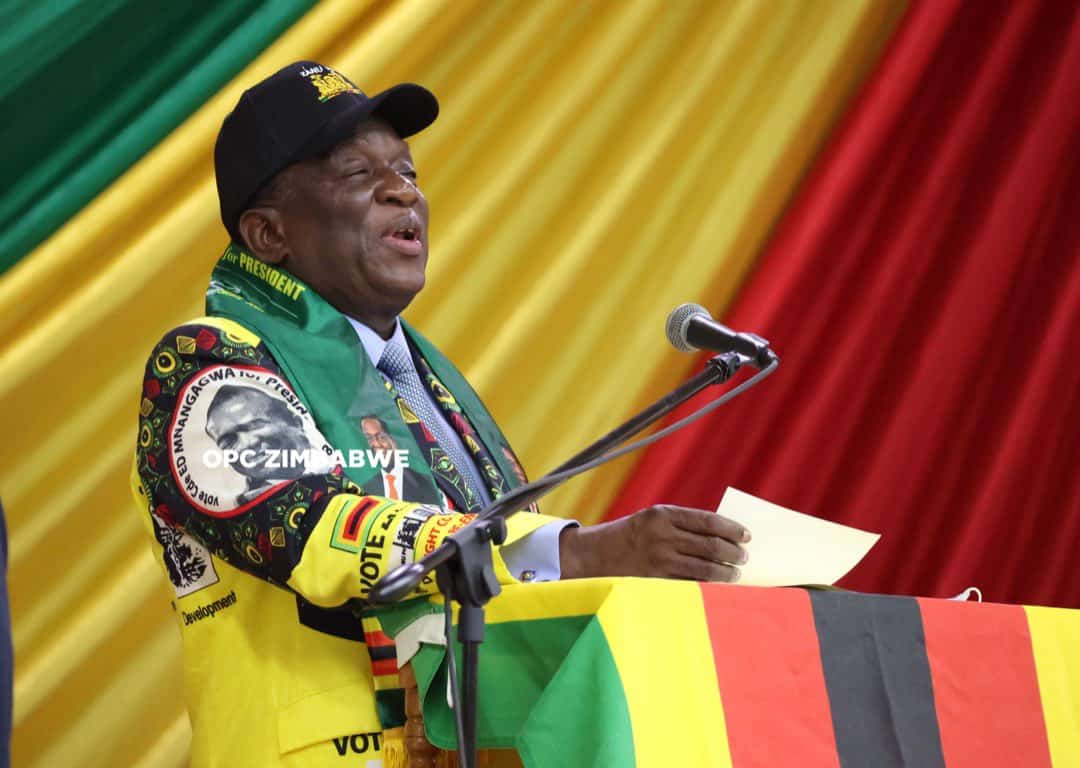Zimbabwe’s political environment may deteriorate to imponderably volatile levels ahead of the 2023 harmonised elections and locals must not be hoodwinked by the relatively calm environment typifying the aftermath of the March 26 by-elections, the country’s financial services giant, Old Mutual has said.
In its quarterly economic report for the period ending 31 March 2022, Old Mutual said Zimbabwe’s political environment may deteriorate in the coming year amid amplified electioneering.
Partly reads the report from Old Mutual:
”The relatively calm post-election environment suggested electoral operations and equipment were fully functional. Political instability remains a key risk to year-end, as preparations for 2023 elections heighten”.
The recent by-elections held in the landlocked southern African nation’s 29 electoral constituencies saw Nelson Chamisa’s main opposition Citizens Coalition for Change (CCC) party winning resoundingly, and giving a warning to President Emmerson Mnangagwa and his long-ruling Zanu PF that the harmonised polls to be held next year will not be a stroll in the park.
As a result of the performance from the CCC, various opinion leaders and political commentators have forecasted a tense political environment with many predicting a turbulent environment as 2023 looms.

Commentators also opine that when he replaced late dictator Robert Mugabe in the November 2017 military coup, Mnangagwa inherited a revolutionary party that resorts to despicable forms of political violence and manipulation of electoral processes to stay at the helm.
And, rightly so, the CCC tasted the bitter taste of political violence when Chamisa’s rally at Mbizo 4 Shopping Centre in Kwekwe turned bloody with the gruesome killing of the party’s supporter, Mboneni Ncube, while dozens were seriously injured and subsequently hospitalised.
Kwekwe is the hometown of the First Family and Mnangagwa’s official residence is in the predominantly agrarian Sherwood area, some few kilometers on the Northwestern side of the central business district, off the main Harare-Bulawayo Road.

In the disputed 2018 elections, Mnangagwa controversially beat Chamisa who was then leading the MDC Alliance- now under Douglas Mwonzora. The elections were typified by rampant human rights violations and the poll-governing Zimbabwe Electoral Commission (Zec) was accused of biased handling of the process to skew the vote in Mnangagwa’s favour.
Scores of dissenting Zimbabweans who disputed the delayed announcement of the presidential election results and besieged central Harare were butchered by gun-trotting security forces who quelled the protests.
In its report early this year, the Zimbabwe Peace Project (ZPP) labelled the police and Zanu PF as the chief scapegoats in the perpetration of human rights violations targeted at CCC supporters and ordinary citizens.
When Ncube was killed in Kwekwe, Chamisa implored on the African Union (AU) and Sadc to intervene fearing that Zimbabwe could be plunged into bloodshed and unrest.
Zec has set 23 April 2023 as the proposed date for the general elections.
The bungling and crisis-ridden electoral body, however, works with provisional dates as Mnangagwa has the prerogative of proclaiming the actual election dates, in accordance with Zimbabwe’s Constitution.
Zwnews











